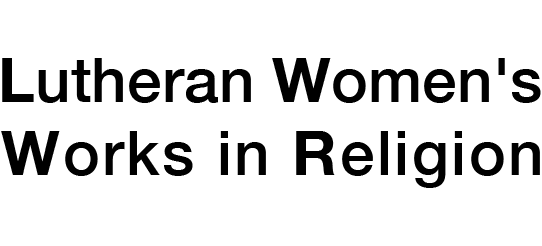Jeannine E. Olson
"An Example from the Diaspora of the Italian Evangelicals: Galeazzo Caracciolo and His Biographies" In
Reformation. vol. 10, 2005 : 45-76
Jeannine E. Olson
"Nicolas Des Gallars and the Colloquy of Poissy: The Neglected Participation of a Pastor of the London Stranger Church in an Ecumenical Council" In
Proceedings of the Huguenot Society of Great Britain & Ireland. vol. 28, no. 5, 2007 : 664-683
Jeannine E. Olson
"Nicolas Des Gallars, Sieur de Saules, Kith, Kin, and Aspects of His Work with Calvin in Geneva" In
Reformation and Renaissance Review. vol. 9, no. 3, 2009 : 277-303
Jeannine E. Olson
"An English Window on the Huguenot Struggle for Recognition: Nicolas Des Gallars and the Colloquy of Poissy" In
Toronto Journal of Theology. vol. 25, no. 2, 2009 : 227-238
Jeannine E. Olson
"The Care of the Poor in Calvin’s Geneva" In
Calvin Studies (Korean).
Kari Kloos
"John Calvin‘s Only Public Office for Women, the Care of the Poor: Wet Nurses, Widows, and Welfare among French Refugees and in the Reformed Tradition" In
Calvin Studies . January 2010 : 229-253
Kari Kloos
"Seeing the Invisible God: Augustine‘s Reconfiguration of Theophany Narrative Exegesis." In
Augustinian Studies. vol. 36, no. 2, 2005 : 396-420
Examines how Augustine challenged ancient Christian claims that Christ appeared in the Old Testament theophanies of Genesis and Exodus, arguing that his developing Trinitarian theology reframed Christological exegesis.
Kari Kloos
"Living in Paradox: Female Identity in Early and Medieval Christianity" In
Journal of Lutheran Ethics. vol. 7, no. 7, July 2006
http://www.elca.org/What-We-Believe/Social-Issues/Journal-of-Lutheran-Ethics/Issues/July-2007/Living-in-Paradox-Female-Identity-in-Early-and-Medieval-Christianity.aspx Explores how early and medieval Christian authors defined female identity paradoxically, both identical to the male in spiritual dignity and inferior socially, ecclesially, and spiritually. The tension created by this paradox yielded both constructive and destructive results historically.
Brenda Llewellyn Ihssen
"St. Basil and St. Gregory’s Sermons against Usury: Credit Where Credit is Due" In
Journal of Early Christian Studies. vol. 16, 2008
Significant features in Gregory of Nyssa‘s sermon Contra usurarios indicate that the younger brother of St. Basil the Great did not merely imitate the latter‘s earlier contribution on the destructive and corrosive nature of usury. Gregory‘s homily has an internal integrity that sets it apart from Basil‘s Homilia in psalmum 14. Though they used common themes when writing about usury—theft, falsehood, anxiety, enslavement, heavenly usury, and the natural world—Basil and Gregory approached these themes differently, were inspired and influenced by different Scripture and philosophy, and had different motives.
Kari Kloos
"In Christ There Is Neither Male nor Female: Patristic Interpretation of Galatians 3:28" In
Studia Patristica. vol. 39, 2006 : 239-244
Explores different forms of ancient Christian (2nd to late 4th century) interpretation of Galatians 3:28, considering views on baptism, asceticism, and social hierarchy.

